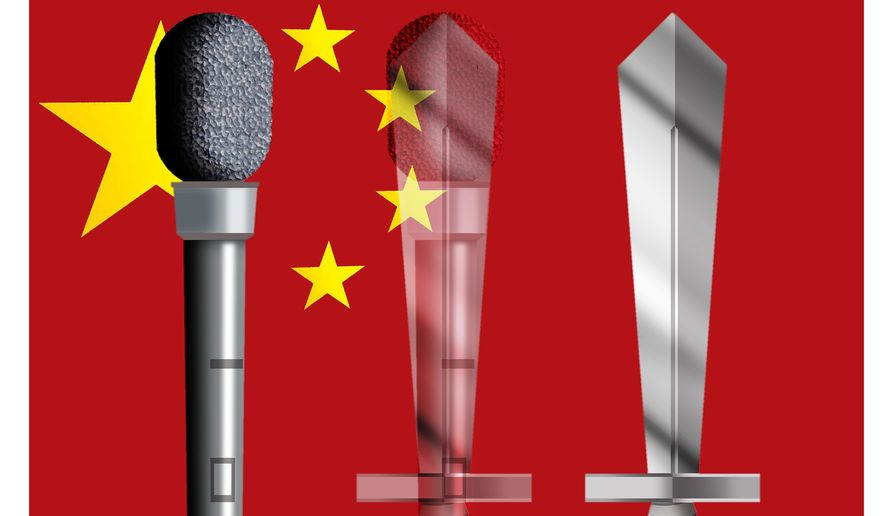Kerry K. Gershaneck
Early on the morning of Oct. 7, when Hamas terrorists savagely massacred roughly 1,400 Israelis and took hostage about 400 more, the press was in place, ready — and seemingly eager — to record the action. News media collaboration with Hamas is not unprecedented, but this time, America must pay attention. In the not-too-distant future, we will see such media collaboration with China’s forces attacking American troops and installations as part of its much broader political warfare playbook. We are not prepared.
According to Reporters Without Borders, photojournalists affiliated with CNN, Associated Press, The New York Times, and Reuters knew where to be when the Hamas butchery began. Some were apparently embedded with the terrorists as they infiltrated Israel on their mission of sadistic mass murder and abduction. International news organizations published the reporters’ images and reports, in effect assisting Hamas’ psychological warfare and propaganda campaign.
Like these news organizations, China is also supporting Hamas’ psychological warfare and propaganda. While news media collaboration with Hamas is not without precedent, Beijing’s increasingly sophisticated political warfare support for Hamas is unprecedented. Beijing has not condemned Hamas’ mass murder and hostage-taking, and its propaganda platforms block all reports about Hamas’s savage attack while sensationalizing Israel’s military response. Further, anti-Israeli propaganda on Chinese Communist Party (CCP)-affiliated TikTok is having a global impact. Finally, China is coordinating its propaganda campaign with Russia and Iran, complicating efforts to detect and defeat it.
In fact, Hamas’ co-option of the news media is straight out of China’s political warfare playbook. George Kennan defined political warfare as all means a nation uses to achieve its strategic objectives short of kinetic war. China‘s political warfare includes media warfare, legal warfare, psychological warfare, United Front operations, active measures like assassination, and a seemingly endless array of unrestricted warfare. As China’s playbook unfolds in the Hamas-Israel conflict, we see what will unfold when Beijing initiates kinetic war. Like Hamas’ Oct. 7 massacre, that war may come faster than expected.
True, it seems fashionable lately for some U.S. officials and celebrity China hands to proclaim that “Everyone knows China prefers to win without fighting, so Xi Jinping is not going to attack (fill in the blank).” The first clause is true: who wouldn’t want to win a war without fighting? But the second clause reflects dangerously wishful thinking.
China has indeed achieved notable strategic victories without fighting. Declaring sovereignty over the South China Sea and militarizing manmade islands, there is one such victory achieved after years of preparation that ensured a feckless global response. However, if Beijing perceives that political warfare alone will not deliver what it wants, it will start a war. Take Mr. Xi’s word on that: The CCP’s top theoretical journal, Qiushi, reports that Xi’s recent speeches strongly emphasize preparation for war, a war he expects to initiate and win.
Chinese doctrine is to strike first, so China will conduct a deliberate surprise attack. But China could also inadvertently ignite a war as a result of the over-zealous People’s Liberation Army (PLA) or maritime armed forces attacking South China Sea claimants or its dangerous air intercepts of U.S. and other nations’ military aircraft. Regardless of what sparks the war, China’s fight for public opinion will be its second battlefield.
Before firing the first missile, China’s highest-level officials will closely plan and direct political warfare operations. The goal is to generate public support worldwide, weaken the U.S. and allies’ will to fight,

No comments:
Post a Comment